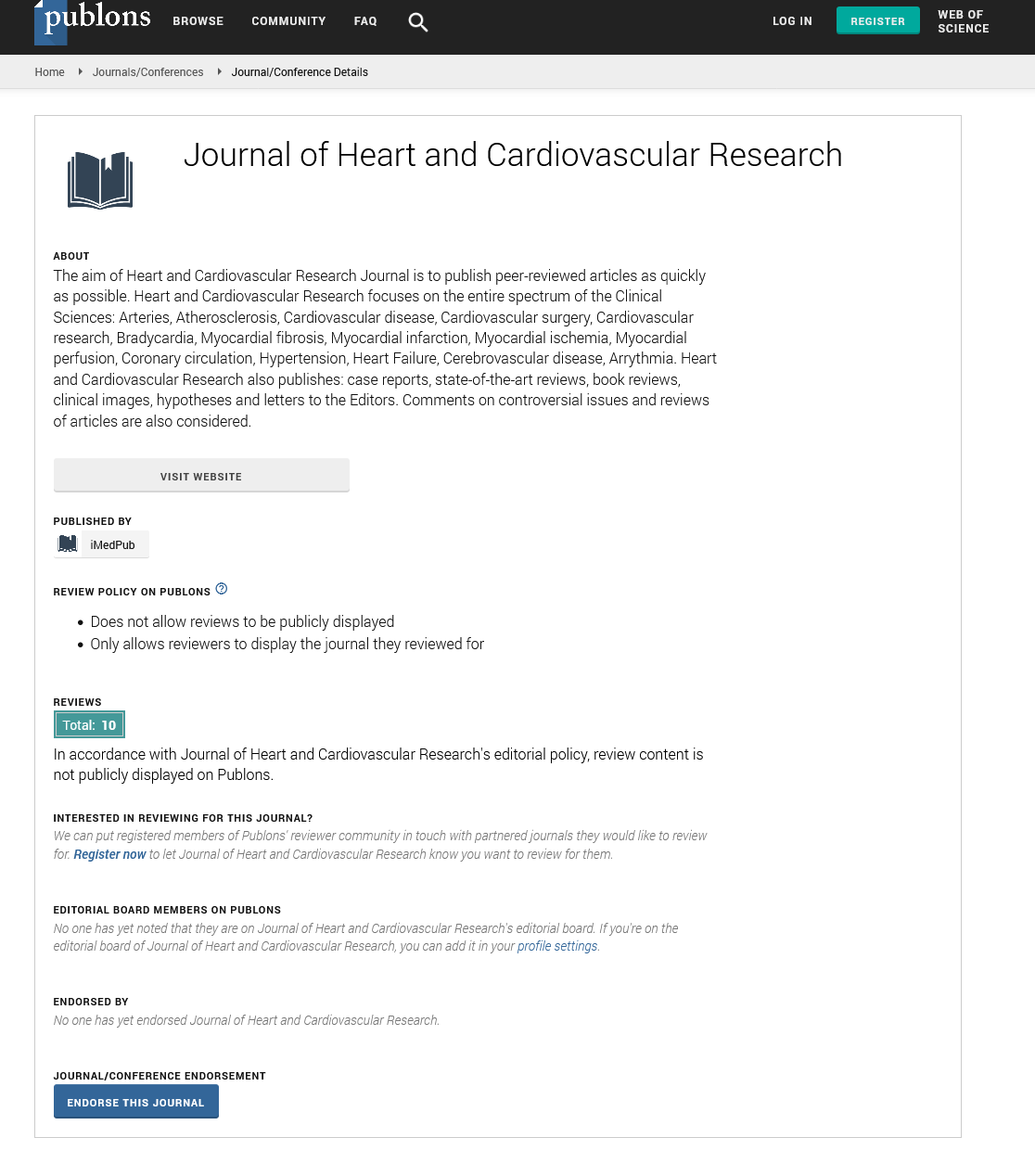ISSN : ISSN: 2576-1455
Journal of Heart and Cardiovascular Research
Abstract
Aspirin Resistance in Subjects with Premature Coronary Artery Disease in Relation to Abdominal Fat and Adipocytokines- Subhashini Yaturu- Dorn VAMC
Introduction:
Long term use of aspirin was shown to decrease the vascular occlusive events of up to nonfatal myocardial infarction (MI), nonfatal stroke and all-cause mortality up to 34%, 25% and 18% respectively . An update from the U.S. Preventive Services Task Force (USPSTF) in 2009 states that aspirin reduces the risk of myocardial infarctions in men and strokes in women. The risk of serious bleeding is increased with aspirin use. . Platelets play a major role in initiation of thrombosis and thrombotic complication. Hence low dose aspirin is recommended for prevention of cardiovascular events.
Objectives:
Objective: The objective of this study was to evaluate aspirin resistance in young men with atherosclerotic cardiovascular disease (ASCVD) and in relation to abdominal fat by body composition and adipocyte hormones.
Results:
Participants included 40 men with a mean age of 53 years with coronary artery disease. Most of them were Caucasian. Baseline characteristics of the cohort are shown in. Biochemical parameters and adipocytokines levels of our study subjects are shown in. Levels of 11DhTx2/cre levels >1500 is considered as aspirin resistance or poor response to aspirin. Approximately 53% of subjects had aspirin resistance. There were no significant differences in the clinical parameters such as age, history of hypertension, BMI, or waist-to-hip ratio between the subjects with 11DhTx2/cre levels <1500 and those with 11DhTx2/cre levels >1500. There were no significant differences in the biochemical parameters such as creatinine and thyroid function tests between the two groups. There was no correlation of levels of 11DhTx2/cre with age. Levels of 11DhTx2/cre correlated with insulin levels (r=0.51; p=0.0008), insulin resistance (r=0.46; p=0.0036), HbA1C (r=0.50; p<0.01), visfatin levels (r=0.30; p=0.05), levels of IL-6 (r=0.43; p=0.005) and percentage of abdominal fat (r=0.41; p<0.01). Levels of 11DhTx2/cre did not have an association with the levels of CRP, TNF-α or MCP-1 levels .
Conclusions: Aspirin resistance is high on 81 mg daily dose and is to related abdominal fat, insulin resistance and IL-6. Subjects with increased abdominal fat may need to be evaluated for adequacy of aspirin response.
Author(s): Subhashini Yaturu1,2* and Shaker Moussa3
Abstract | PDF
Share This Article
Google Scholar citation report
Citations : 34
Journal of Heart and Cardiovascular Research received 34 citations as per Google Scholar report
Journal of Heart and Cardiovascular Research peer review process verified at publons
Abstracted/Indexed in
- Google Scholar
- Sherpa Romeo
- China National Knowledge Infrastructure (CNKI)
- Publons
Open Access Journals
- Aquaculture & Veterinary Science
- Chemistry & Chemical Sciences
- Clinical Sciences
- Engineering
- General Science
- Genetics & Molecular Biology
- Health Care & Nursing
- Immunology & Microbiology
- Materials Science
- Mathematics & Physics
- Medical Sciences
- Neurology & Psychiatry
- Oncology & Cancer Science
- Pharmaceutical Sciences
